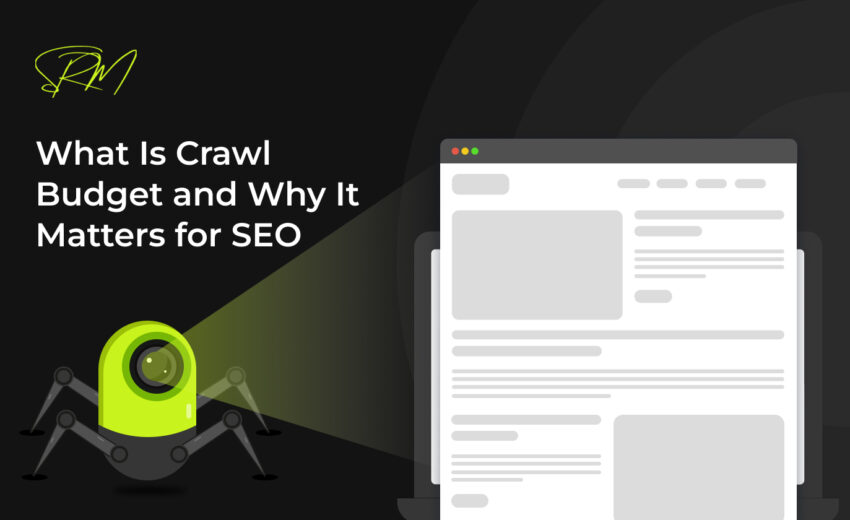
If you’re working on improving your website’s SEO, you might have come across the term crawl budget. At first, it may sound a bit technical or confusing, but don’t worry — we’ll break it down in easy words.
Crawl budget is something that affects how often Google visits your website and which pages it looks at. If you understand how it works, you can make sure your important pages get seen and ranked. This can help improve your visibility on search engines.
What Is a Crawl Budget?
Crawl budget is basically the number of pages on your website that Google (or other search engines) decides to crawl and index in a given period of time. Google uses bots (also known as crawlers or spiders) to scan websites. These bots follow links and gather information about the content on your site.
But here’s the key: Google doesn’t crawl your entire website all at once. Instead, it crawls a limited number of pages based on how healthy and popular your website is. That limit is your crawl budget.
Imagine your website is a big library. Google is a visitor with only one hour to spend inside. The visitor will try to read as many books (pages) as possible during that hour. If your books are easy to find and well-organized, the visitor can read more of them. But if the books are hard to find or the shelves are messy, the visitor might not get through very many — and some might be skipped.
This is how the crawl budget works. If Google can’t crawl all your pages efficiently, some of your content may never be indexed — meaning it won’t show up in search results.
Why Crawl Budget Matters for SEO
Crawl budget is important because it decides how many pages of your website Google will visit and index. If your site has too many pages or technical issues, Google may miss some of your important content. By managing your crawl budget well, you help search engines find and show the right pages in search results, which can improve your rankings and traffic.
1. Uncrawled Pages Don’t Rank
If Google doesn’t crawl a page, it doesn’t know that page exists. And if it doesn’t know the page exists, it won’t show up in search results — no matter how great your content is. This is a big deal for SEO.
2. Big Websites Need Better Crawl Management
Crawl budget is especially important for websites with hundreds or thousands of pages, like online stores, blogs with lots of articles, or directories. If your site has many pages but only a few get crawled, you’re wasting valuable content.
3. Updated Content Might Be Missed
Google needs to revisit your site regularly to notice updates, like new blog posts or edited product descriptions. A low crawl budget can delay this process, which means your new content may not get indexed on time.
What Factors Affect Crawl Budget?
Google doesn’t randomly decide how much of your site to crawl. There are a few important things that influence your crawl budget:
1. Site Speed
A fast-loading site is easier and quicker for Google bots to scan. If your pages load slowly, Google may give up before reaching all your content. Speed helps you make the most of your crawl budget.
2. Server Performance
If your server is often down or responds slowly, Google might reduce the frequency of its visits. Google doesn’t want to overload slow servers, so it limits crawling when it sees issues.
3. Duplicate Content
If your site has many pages with almost the same content (like product listings with small differences), Google might spend time crawling those instead of the unique and important pages.
4. Broken Links and Errors
Too many 404 pages (page not found errors) or redirect chains waste Google’s time. Fixing these can help Google focus on the pages that really matter.
5. Internal Linking Structure
A clear and organized link structure helps Google understand which pages are most important. If your site is confusing or has too many orphan pages (pages with no links pointing to them), Google may miss them entirely.
How to Improve Your Crawl Budget
Now that you understand what crawl budget is and why it’s important, here are some tips to improve it:
1. Speed Up Your Website
Use tools like Google PageSpeed Insights to find out what’s slowing down your site. Compress large images, use browser caching, and reduce unnecessary scripts. A fast website helps Google crawl more pages in less time.
2. Fix Broken Links and Errors
Use SEO tools like Screaming Frog or Ahrefs to scan your site for broken links, redirect loops, and other errors. Fixing these can make your site more crawl-friendly.
3. Avoid Duplicate Pages
Make sure each page on your site has a unique purpose and content. Use canonical tags if you have pages that are similar, so Google knows which one to prioritize.
4. Use Robots.txt Wisely
If you have pages that don’t need to be crawled (like admin pages, login pages, or filter pages), block them in your robots.txt file. This helps save crawl budgets for your valuable pages.
5. Improve Internal Linking
Link your most important pages from your homepage or main navigation. Use descriptive anchor text and keep a logical site structure, so Google bots can easily follow the paths.
6. Update Content Regularly
Keep your content fresh and useful. If Google sees that your site is regularly updated and well-maintained, it may increase your crawl budget over time.
How to Check Crawl Budget
You can’t see your exact crawl budget, but there are a few ways to get a good idea of it:
1. Use Google Search Console
- Go to Settings > Crawl Stats
- This section shows how many pages Google crawls per day
- It also tells you how often and how fast Googlebot visits your site
2. Check Your Server Logs
- This requires some technical help
- Server logs show which pages were crawled and when
- You can spot patterns and pages that are getting ignored
3. Use SEO Tools
- Tools like Screaming Frog, Ahrefs, or SEMrush can help you track crawl behavior
- These tools can show crawl errors, duplicate pages, and broken links that waste your crawl budget
Final Thoughts
Crawl budget might not be the first thing people think about when working on SEO, but it plays a huge role in how search engines see your website. If Google can’t crawl your site properly, your pages won’t show up in search results — and all your great content will go to waste.
Whether you have a small blog or a large e-commerce store, it’s worth checking how your site is being crawled. By making a few changes — like speeding up your site, fixing broken links, and organizing your content — you can help search engines do their job more efficiently.In short: a healthy crawl budget means better SEO, more visibility, and higher chances of reaching your audience.



